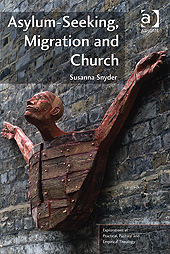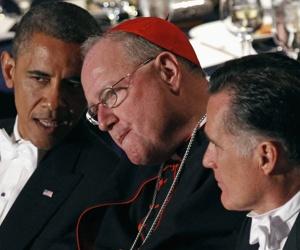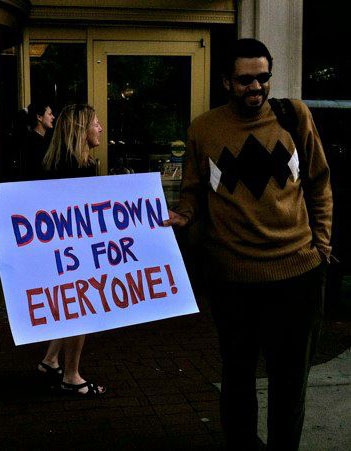The reader of the first three volumes of Agamben’s Homo Sacer series—the eponymous first volume, State of Exception, and Remnants of Auschwitz—could be forgiven for being skeptical. Though Agamben’s meditations on the question of sovereignty had an immediate purchase during the dark days of the Bush Administration, it could sometimes seem that he was guilty of stretching the concepts of the sovereign exception and bare life to the breaking point, forcing them to take on an explanatory burden they could not really bear. One could concede that when pushed to a certain extreme, the Western theologico-political machine breaks down into the confrontation of sovereign power and bare life, and perhaps even that the Western machine operates within the tension between the two—yet there is so much going on in that “between” that it seems impossible that it can all be accounted for in Agamben’s terms…

Increasingly in liturgical circles it is becoming politically incorrect to talk about the “kingship” of Christ. Such a term now brings with it all the baggage of patriarchal interpretations of the biblical text. It calls to mind the exploitation brought about by colonial powers, abuses of power at the hands of politicians, and perhaps every abuse of power—abuses which represent heinous tragedy and sin. However, while we lament such abuse it is important to remember that power, in political terms, is itself neutral. It is a gift given by God in creation, which when wielded in the hands of human beings can be used for either selfish or selfless purposes (usually with correspondingly negative or positive results). Unfortunately, too often we as human beings struggle to monopolize power for our own sakes and consequently abuses occur…
Few figures in the history of theology can boast as contested a legacy as Richard Hooker, the purported forefather of a protean via media that is redefined with dizzying frequency. Until recently, many readings of Hooker suffered from the insularity that characterized much of Anglican historiography, doggedly committed to the assumption that England had its own history, blissfully independent from goings-on on the Continent. So when historian Torrance Kirby suggested that in fact, Richard Hooker should be read as a theologian of the magisterial Reformation, he touched a raw nerve among Hooker scholars, generating a hostile backlash that, after two decades, shows no sign of letting up. Perhaps tellingly, none of the responses to Kirby and his followers has bothered to engage the thesis at the heart of his re-interpretation, that Hooker’s theological response to Puritanism rested throughout on his Protestant—indeed, Lutheran—two-kingdoms doctrine…

1) What inspired you to write Asylum-Seeking, Migration and Church? When I was training for ordination in Birmingham in 2004, I started to volunteer with church-based organizations supporting asylum seekers. As a result of the UK government’s asylum seeker dispersal program, many newcomers were being housed in Birmingham while they waited for decisions on their cases. Churches were offering considerable practical and spiritual support and I was both impressed and intrigued. I wondered: why are they so engaged with migrants and are they—are we—doing a good job? Perhaps even more importantly, I started getting to know a few people who were seeking refuge, a number of whom have allowed me to share their stories in the book. The book was inspired by and is written for them—for Annette, Hassan, Fatima—people who have experienced pain and joy, shown extraordinary courage, and offered me friendship…

The Catholic Church in the United States is in decline because its public theology, on both the left and the right, is primarily focused on gaining influence over the state. As theologian Michael Baxter has argued, the church’s first priority should be on living as a community of faith and serving as a public witness.

Maybe it’s strange to think about political theology at a wedding ceremony. But political theology was on my mind a few years ago, when I attended the wedding of a same-sex couple in my extended family. The recent victories for marriage equality in Maine, Maryland, and Washington have me thinking about political theology again. I had a Thomist epiphany at that wedding years ago, and as the levees blocking marriage equality seem ready to break, I’d like to share that experience…

The editors of Political Theology are pleased to announce that Vincent Lloyd of Syracuse University is the newest member of the journal’s editorial team. Lloyd agreed to join the team as one of the editors beginning November 1. He had been a frequent contributor to both the journal and a contributing editor to this blog. Below is a short bio as well as links to more about Lloyd’s research and his book, The Problem with Grace…
Under the pretense of talking about pirate theology, Peter Rollins, Kester Brewer and Barry Taylor gathered to discuss “radical theology” at Fuller this month. Rollins, in particular, analyzed the intersection between psychoanalysis and theology, arguing that Christians need to experience doubt like Jesus on the cross, asking God, the father, “My God, my God, why have you forsaken me?” After much contrived discussion, the panelists concluded that radical theology will lead to the death of Christianity as a religion in order that a new manifestation of Jesus-following might emerge. While I sympathize with Rollins and co.’s intentions, I am not certain how radical theology’s psychoanalytic approach relates to non-western contexts. Moreover, their assessment of radical theology’s (read: Emergent Church) role in church history falls victim to the same dialectical trap that Rollins critiques in his work…
